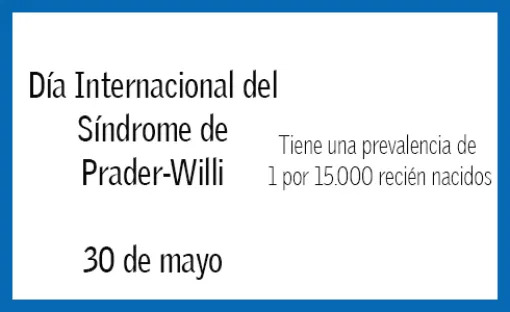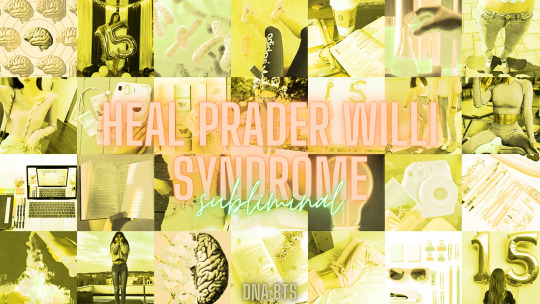#prader willi
Text
As someone who is somewhat of a “veteran” of the online ND community, I’m disappointed in the lack of positivity and love for lesser known diverse cognitive conditions, and the opposing abundance of posts about “cures” or outdated criteria or treatments for those conditions. So, without further ado, I want to say hello to anyone with any of the disorders I’m listing, and give them the love and support that hardly anyone else in our community has… Shoutout to:
People with Down syndrome
People with Fragile X
People with William’s syndrome
People with dyslexia
People with dyspraxia
People with dyscalculia
People with dysgraphia
People with Prader-Willi syndrome
People with PANS or PANDAS
People with aphasia
People with a TBI (traumatic brain injury)
People with chronic/early onset mental illnesses
People with cerebral palsy
People with FASD or were otherwise disabled via other substances in utero
And many, many more I may have forgotten to list (but still support and love, I will add more to my list)
You are all beautiful and wonderful, and you all deserve so more love, appreciation, acceptance and support. You are just as neurodiverse as the rest of us, and your voices deserve to be heard and amplified.
I love you all ❤️
#autism#autistic#actually autistic#neurodivergent#actually neurodiverse#audhd#sensory processing disorder#down syndrome#fragile x#fragile x syndrome#williams syndrome#dyslexia#dyspraxia#dyscalculia#prader willi#aphasia#tbi#traumatic brain injury#chronically ill#chronic mental illness#cerebral palsy#fasd#neurodivergent love#dysgraphia#pans#pandas
8K notes
·
View notes
Text
The guy who first diagnosed Down syndrome back in 1866 showed more compassion to his patients then some people now.
I would write a paper on this guy if I had the time, because honestly? He was ahead of his time.
Also late in his career he was the first person to publish a description of Prader Willi syndrome.
Imagine that not being the most influential thing you did.
Anyways read up on him if you feel sad.
45 notes
·
View notes
Text

heal Prader Willi Syndrome sub background 1920 x 1080
#1920 x 1080#prader willi#pink#purple#blue#aesthetic#2010s#15#chromosomes#eating disorders#eating disorder
0 notes
Photo

eating again george ? 😋
79 notes
·
View notes
Text

El 30 de mayo se celebra el Día Internacional del Síndrome Prader Willi, con la finalidad de sensibilizar a la población acerca de esta enfermedad poco frecuente, originada por un fallo en la expresión de genes del cromosoma 15.
La alteración genética ocasionada por esta enfermedad fue reseñada clínicamente en el año 1956, por los médicos suizos Andrea Prader, Alexis Labhart y Heinrich Willi.
Surgió a raíz del diagnóstico efectuado a nueve pacientes, quienes presentaron un cuadro clínico de obesidad, talla baja, hipogonadismo y criptorquidia. Mostraron alteraciones en el aprendizaje posteriormente a una etapa de hipotonía muscular pre y posnatal, así como una discapacidad intelectual de leve a moderada.
¿Qué es el Síndrome Prader Willi?
El Síndrome Prader Willi (SPW) es un trastorno genético poco frecuente, originado por la deficiencia en la expresión de genes del cromosoma 15, ocasionando discapacidad intelectual, obesidad y baja estatura. Se manifiesta en los primeros años de vida, afectando a 1 de cada 20.000 recién nacidos vivos.
Esta alteración genética afecta el sistema nervioso central, generando una disfunción en el hipotálamo. Esta región del cerebro regula varios ciclos corporales: produce la secreción de hormonas, controla el apetito, regula la temperatura corporal y estimula la producción de hormonas del crecimiento para el desarrollo del cuerpo.
Algunos de los rasgos físicos distintivos de este síndrome son los siguientes: ojos con forma de almendra, sienes de la cabeza estrechas, labio superior fino y exceso de grasa corporal.
Este síndrome es conocido como la enfermedad de los mil síntomas. Los principales síntomas que caracterizan a este trastorno varían en cada paciente, los cuales pueden cambiar en el transcurso de la infancia a la adultez:
Hipotonía (poco tono muscular) en la etapa de la lactancia caracterizada por la dificultad para succionar, generando dificultades en la alimentación. Incide en el retraso del crecimiento y el habla.
Falta de energía.
Retraso en el desarrollo psicomotor, discapacidad intelectual y problemas en el comportamiento, durante la etapa de infancia.
Reflejo de succión deficiente, dificultando la alimentación y generando deficiencias en el desarrollo.
Problemas de aprendizaje: incapacidad para comprender instrucciones simples, dificultades con el pensamiento abstracto.
Retraso mental leve.
Conductas inusuales, tales como impulso incontrolable por el consumo de alimentos (hiperfagia) que genera obesidad o sobrepeso, impaciencia, ataques de ira, distracciones, impulsividad, problemas de comunicación, conductas autolesivas y comportamientos obsesivos-compulsivos, poca habilidad interpersonal.
¿Cómo afecta este Síndrome al organismo?
Los efectos causados por el Síndrome de Prader Willi en el organismo se originan debido a la deficiencia en la producción de hormonas en el eje hipotalámico-hipofisiario-adrenal. Pueden variar en cada paciente:
Obesidad, motivado al apetito excesivo e incontrolable.
Tendencia a padecer diabetes no insulinodependiente.
Hipogonadismo, referido al escaso desarrollo de las características sexuales masculinas o femeninas (huesos finos, músculos débiles, vello leve, reducción del tono grave de la voz).
Alteraciones en el control de la temperatura corporal.
Resistencia al dolor.
Dificultades respiratorias al dormir (hipoventilación).
Alteraciones del sueño y somnolencia diurna.
Estrabismo.
Hipertensión.
Problemas dentales.
Imposibilidad de vomitar.
Curvatura en la columna.
Osteoporosis.
Tratamiento del Síndrome Prader Willi
En la detección de esta enfermedad poco frecuente se requiere la aplicación de tests de diagnóstico molecular. No existe una cura, siendo muy importante el diagnóstico temprano por parte de un médico especialista.
Mostramos a continuación algunas indicaciones para el tratamiento de la patología, orientadas a mejorar la calidad de vida de los pacientes:
Dieta estricta bajo supervisión constante, para controlar el peso y evitar la obesidad.
Administración de tratamientos hormonales.
Para tratar los problemas de comportamiento se deben establecer rutinas diarias, reglas y límites con gratificaciones positivas o recompensas, que no estén asociadas con alimentos.
Apoyo psiquiátrico y/o psicológico para tratar problemas de conducta y autoestima.
Suministro de calcio y vitamina D.
Las personas afectadas con esta enfermedad poco frecuente requieren asistencia y apoyo, necesarios para su protección e integración social. Comparte información sobre el Día Internacional del Síndrome de Prader Willi en las redes sociales, utilizando los hashtag #sindromepraderwilli #SindromePraderWilli
3 notes
·
View notes
Text
Physical Therapy and Exercise in Managing Prader Willi Syndrome
Interaction Empowering People is dedicated to providing assistance to individuals affected by Prader Willi Syndrome, Our services include special needs education, therapy programs, personal skill development, and social integration activities.
0 notes
Text
Boosting Office Productivity: The Unexpected Advantages of Outsourcing Rubbish Removal
One common remedy to this is outsourcing office rubbish removal, a practice that has gained momentum over the years thanks to its surprising benefits.
#rubbish removal western sydney#garden waste removal western sydney#rubbish removal inner west#garden waste removal inner west#prader willi syndrome#business
0 notes
Link
Prader–Willi syndrome (PWS) is a rare genetic disorder caused by a loss of function of specific genes on chromosome 15.[2] In newborns, symptoms include weak muscles, poor feeding, and slow development.[2] Beginning in childhood, those affected become constantly hungry, which often leads to obesity and type 2 diabetes.[2] Mild to moderate intellectual impairment and behavioral problems are also typical of the disorder.[2] Often, affected individuals have a narrow forehead, small hands and feet, short height, and light skin and hair. Most are unable to have children.[2]
About 74% of cases occur when part of the father's chromosome 15 is deleted.[2] In another 25% of cases, the affected person has two copies of the maternal chromosome 15 from the mother and lacks the paternal copy.[2] As parts of the chromosome from the mother are turned off through imprinting, they end up with no working copies of certain genes.[2] PWS is not generally inherited, but rather the genetic changes happen during the formation of the egg, sperm, or in early development.[2] No risk factors are known for the disorder.[4] Those who have one child with PWS have less than a 1% chance of the next child being affected.[4] A similar mechanism occurs in Angelman syndrome, except the defective chromosome 15 is from the mother, or two copies are from the father.[5][6]
Prader–Willi syndrome has no cure.[7] Treatment may improve outcomes, especially if carried out early.[7] In newborns, feeding difficulties may be supported with feeding tubes.[3] Strict food supervision is typically required, starting around the age of three, in combination with an exercise program.[3] Growth hormone therapy also improves outcomes.[3] Counseling and medications may help with some behavioral problems.[3] Group homes are often necessary in adulthood.[3]
PWS affects between 1 in 10,000 to 30,000 people worldwide.[2] The condition is named after Swiss physicians Andrea Prader and Heinrich Willi who, together with Alexis Labhart, described it in detail in 1956.[1] An earlier description was made in 1887 by British physician John Langdon Down.[8][9]
0 notes
Text
https://www.healthlaugh.com/
0 notes
Text
What Everyone Ought To Know About Prader-Willi Syndrome
Prader-Willi Syndrome is one of the very rare genetic disorders that brings various physical, mental, and behavioral changes. The main reason behind all the complications of this disease is uncontrolled hunger. So these patients are unable to control their body weight related to their age and height. Patients who suffer from Prader-Willi syndrome never feel full and they have an uncontrolled…

View On WordPress
#How do you cope and support the patients with Prader-Willi Syndrome#How do you prevent Prader-Willi Syndrome#How to manage a patient with Prader-Willi Syndrome#Prader Willi Syndrome Adults#Prader Willi Syndrome Cause#Prader Willi Syndrome Diagnosis#Prader Willi Syndrome Features#Prader Willi Syndrome Genetics#Prader Willi Syndrome Infant#Prader Willi Syndrome Symptoms#Prader-Willi Syndrome Complications#Treatment for Prader Willi Syndrome#What lifestyle changes you can make to manage Prader-Willi Syndrome
0 notes
Link
The mothers of two teenage boys who died after failures in their care have called on the government to make "urgent improvements" to how children with disabilities are assessed.
Sammy Alban-Stanley, from Kent, had autism and a rare genetic condition called Prader-Willi Syndrome, both of which caused high-risk behaviour and saw him attempt to take his own life on multiple occasions.
He died after falling from a harbour wall in Ramsgate, Kent, in April 2020.
Oskar Nash, from Surrey, had Asperger's syndrome, an autism spectrum disorder, and took his own life on a railway near Egham, Surrey, in January of the same year.
He had talked about suicide from the age of six, but his emotional and mental health was never clinically assessed, despite a series of requests to CAMHS throughout his lifetime, from the age of three.
Ms Nash said that throughout her son Oskar's life there was "no understanding of his condition by any of the bodies engaged in his care" and "no appreciation for the additional challenges Oskar faced because of his condition".
1 note
·
View note
Text
Vulcan Eyebrow Pointiness is governed by gene(s) in an imprinted region of the genome.
Imprinted genes are expressed differently depending on which parent they're inherited from; either the maternal or paternal copy of the gene is suppressed. On Earth, this can be seen in some human genetic disorders such as Prader-Willi/Angelmann syndrome (both caused by a large deletion on chromosome 15; which one presents is dependent on which parent the mutation is inherited from).
Another case where genomic imprinting causes noticeable differences in phenotype are lion/tiger hybrids. They have the same complement of genes, being 50% lion and 50% tiger, but ligers (male lion/female tiger) are absolutely heckin massive, being larger than both parent species and the largest feline in the world, and are lighter in base colour (more the colour of a lion than a tiger).

Fig. 1: Liger
Tigons (male tiger/female lion) on the other hand are about the size of a tiger and more tigery orange in colouration. This is because of growth-suppressing genes that are active when inherited from a female lion, but not when inherited from a male one, and corresponding growth-promoting genes that are only active when inherited from a male. Female tigers do not have the required growth-suppressing genes to counteract the latter, so ligers get huge, but tigons don't.

Fig. 2: Tigon. Note that both are stripey.
In the case of Vulcans, the maternal copy of at least one gene that governs eyebrow pointiness is suppressed, whereas the paternal one is active. Behold:

Fig. 3: Spock, half-Vulcan with a Vulcan father, has pointy ears and pointy eyebrows (obvious usage of eyebrow liner notwithstanding).

Fig. 4: Lorian, half-Vulcan with a Vulcan mother, still has pointy ears but round eyebrows.
As you can see, the eyebrow pointiness phenotype differs depending on which parent it is inherited from, whereas the ear pointiness phenotype appears to be dominant, much like stripeyness.
tl;dr: Spock is a liger and Lorian is a tigon.
#star trek#star trek tos#star trek enterprise#spock#vulcans#I am aware that if I'm comparing stripeyness to pointy ears#then that would make spock a tigon and lorian a liger#but unfortunately#I like it better the other way#so you'll just have to deal with my inconsistent metaphors here
2K notes
·
View notes
Text







Heal Prader Willi Syndrome Subliminal
1 note
·
View note
Text
Neurodivergent: a list
A list of those who are included under the "neurodivergent" label.
Applied Neurodiversity
Dyscalculia
Dysgraphia
Dyslexia
Dysnomia
Dyspraxia
Dissociative disorders
Depersonalization-derealization disorder (DpDr)
Dissociative amnesia
Dissociative identity disorder (DID)
Other specified dissociative disorder (OSDD)
Unspecified dissociative disorder
Eating disorders:
Anorexia nervosa
Avoidant restrictive food intake disorder (ARFID)
Binge-eating disorder
Bullimia nervosa
Pica
Mental illnesses:
Anxiety
Delusional disorder
Depression
Complex post-traumatic stress disorder (CPTSD)
Post-traumatic stress disorder (PTSD)
Personality Disorders:
Cluster A:
Paranoid personality disorder
Schizoid personality disorder
Schizotypal personality disorder
Cluster B:
Antisocial personality disorder
Borderline personality disorder (BPD)
Histrionic personality disorder (HPD)
Narcissistic personality disorder (NPD)
Cluster C:
Avoidant personality disorder
Dependent personality disorder
Obsessive-compulsive personality disorder
Other:
Personality change due to another medical condition
Personality disorder not otherwise specified (PD-NOS)
personality disorder trait specified (PD-TS)
Tic disorder
Chronic motor or vocal tic disorder
Tourette syndrome
Transient tic disorder
other
Acquired Brain Injuries (ABI)
Angelmans Syndrome
Auditory processing disorder
Autism spectrum disorder (ASD)
Attention deficit hyperactivity disorder (ADHD)
Body integrity identity disorder (BIID)
Bipolar disorder
Depersonalization-derealization disorder (DPDR)
Down syndrome
Fetal alcohol spectrum disorder (FASD)
Fragile X syndrome
Hyperlexia
Intellectual disability
Irlen Syndrome
Meares-Irlen Syndrome
Obsessive-compulsive disorder (OCD)
Obsessive love disorder (OLD)
Pediatric autoimmune neuropsychiatric disorders associated with streptococcal infections (PANDAS)
Prader-Willi Syndrome (PWS)
Prosopagnosia
Savant Syndrome
Schizophrenia
Synesthesia
Williams Syndrome/Williams Beuren Syndrome
This is by no means a full list.
If you: see that I'm missing something, or
want me to rephrase something, or
have a resource to share, or
have a suggestion for organizing the list
please let me know in the comments/rebloggs.
I'm autistic and I love making lists. I also hope it may help spread awareness about neurodivergent people!
I am not an expert. But I do believe that we should be careful to include people in the neurodivergent umbrella. We are stronger together.
Updated: 9/2/24
#neurodivergent#personality disorder#npd#bpd#hpd#autism#adhd#intellectual disability#down syndrome#schizophrenia#schizoid#depression#anxiety#ptsd#cptcd#dysgraphia#dysnomia#dyscalculia#dyslexia#paranoid personality disorder#Antisocial personality disorder#ocd#abi#biid#did#bipolar disorder#tourette syndrome
300 notes
·
View notes
Photo

El 30 de mayo se celebra el Día Internacional del Síndrome Prader Willi, con la finalidad de sensibilizar a la población acerca de esta enfermedad poco frecuente, originada por un fallo en la expresión de genes del cromosoma 15.
La alteración genética ocasionada por esta enfermedad fue reseñada clínicamente en el año 1956, por los médicos suizos Andrea Prader, Alexis Labhart y Heinrich Willi.
Surgió a raíz del diagnóstico efectuado a nueve pacientes, quienes presentaron un cuadro clínico de obesidad, talla baja, hipogonadismo y criptorquidia. Mostraron alteraciones en el aprendizaje posteriormente a una etapa de hipotonía muscular pre y posnatal, así como una discapacidad intelectual de leve a moderada.
¿Qué es el Síndrome Prader Willi?
El Síndrome Prader Willi (SPW) es un trastorno genético poco frecuente, originado por la deficiencia en la expresión de genes del cromosoma 15, ocasionando discapacidad intelectual, obesidad y baja estatura. Se manifiesta en los primeros años de vida, afectando a 1 de cada 20.000 recién nacidos vivos.
Esta alteración genética afecta el sistema nervioso central, generando una disfunción en el hipotálamo. Esta región del cerebro regula varios ciclos corporales: produce la secreción de hormonas, controla el apetito, regula la temperatura corporal y estimula la producción de hormonas del crecimiento para el desarrollo del cuerpo.
Algunos de los rasgos físicos distintivos de este síndrome son los siguientes: ojos con forma de almendra, sienes de la cabeza estrechas, labio superior fino y exceso de grasa corporal.
Este síndrome es conocido como la enfermedad de los mil síntomas. Los principales síntomas que caracterizan a este trastorno varían en cada paciente, los cuales pueden cambiar en el transcurso de la infancia a la adultez:
Hipotonía (poco tono muscular) en la etapa de la lactancia caracterizada por la dificultad para succionar, generando dificultades en la alimentación. Incide en el retraso del crecimiento y el habla.
Falta de energía.
Retraso en el desarrollo psicomotor, discapacidad intelectual y problemas en el comportamiento, durante la etapa de infancia.
Reflejo de succión deficiente, dificultando la alimentación y generando deficiencias en el desarrollo.
Problemas de aprendizaje: incapacidad para comprender instrucciones simples, dificultades con el pensamiento abstracto.
Retraso mental leve.
Conductas inusuales, tales como impulso incontrolable por el consumo de alimentos (hiperfagia) que genera obesidad o sobrepeso, impaciencia, ataques de ira, distracciones, impulsividad, problemas de comunicación, conductas autolesivas y comportamientos obsesivos-compulsivos, poca habilidad interpersonal.
¿Cómo afecta este Síndrome al organismo?
Los efectos causados por el Síndrome de Prader Willi en el organismo se originan debido a la deficiencia en la producción de hormonas en el eje hipotalámico-hipofisiario-adrenal. Pueden variar en cada paciente:
Obesidad, motivado al apetito excesivo e incontrolable.
Tendencia a padecer diabetes no insulinodependiente.
Hipogonadismo, referido al escaso desarrollo de las características sexuales masculinas o femeninas (huesos finos, músculos débiles, vello leve, reducción del tono grave de la voz).
Alteraciones en el control de la temperatura corporal.
Resistencia al dolor.
Dificultades respiratorias al dormir (hipoventilación).
Alteraciones del sueño y somnolencia diurna.
Estrabismo.
Hipertensión.
Problemas dentales.
Imposibilidad de vomitar.
Curvatura en la columna.
Osteoporosis.
Tratamiento del Síndrome Prader Willi
En la detección de esta enfermedad poco frecuente se requiere la aplicación de tests de diagnóstico molecular. No existe una cura, siendo muy importante el diagnóstico temprano por parte de un médico especialista.
Mostramos a continuación algunas indicaciones para el tratamiento de la patología, orientadas a mejorar la calidad de vida de los pacientes:
Dieta estricta bajo supervisión constante, para controlar el peso y evitar la obesidad.
Administración de tratamientos hormonales.
Para tratar los problemas de comportamiento se deben establecer rutinas diarias, reglas y límites con gratificaciones positivas o recompensas, que no estén asociadas con alimentos.
Apoyo psiquiátrico y/o psicológico para tratar problemas de conducta y autoestima.
Suministro de calcio y vitamina D.
Las personas afectadas con esta enfermedad poco frecuente requieren asistencia y apoyo, necesarios para su protección e integración social. Comparte información sobre el Día Internacional del Síndrome de Prader Willi en las redes sociales, utilizando los hashtag #sindromepraderwilli #SindromePraderWilli
2 notes
·
View notes
Text
Services For Individuals With Prader-Willi Syndrome
Interaction Empowering People is a leading provider of services for individuals affected by Prader-Willi Syndrome, the most significant area of our work in the syndrome. Contact Interaction Empowering People for empowering services.
0 notes